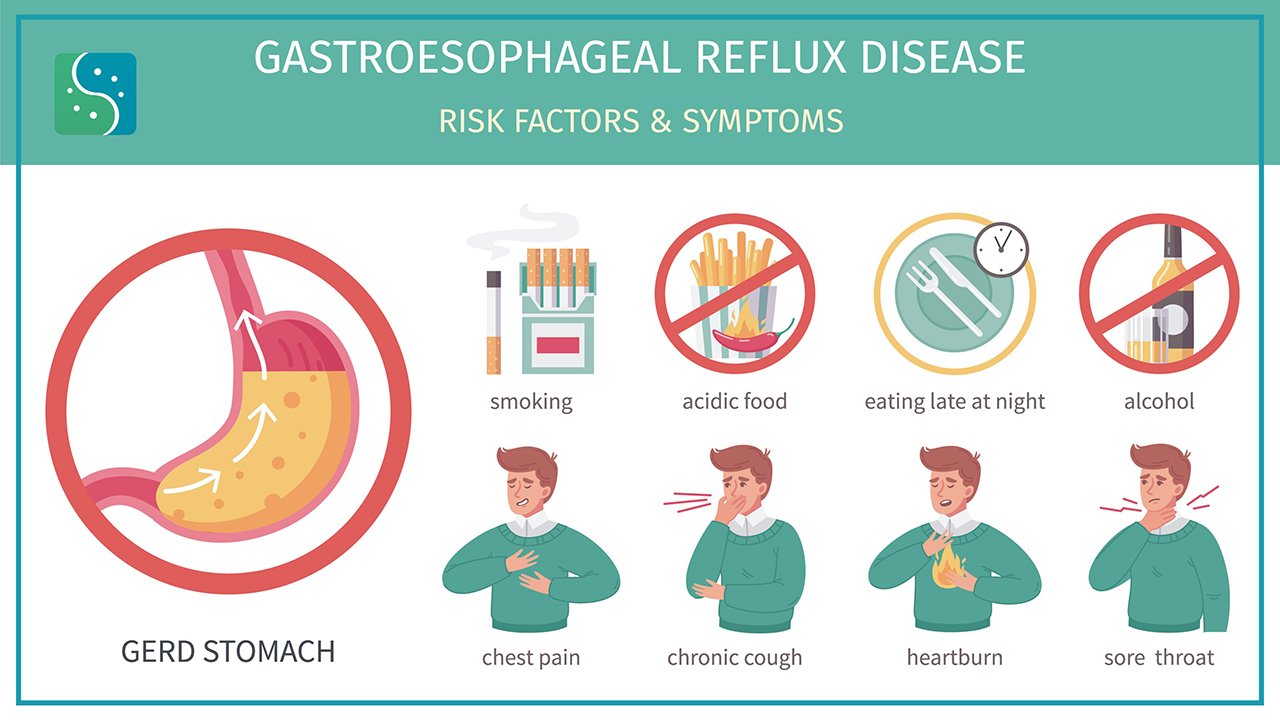GASTROESOPHAGEAL REFLUX DISEASE (GERD) is when contents of your stomach persistently move back up into your esophagus. These contents sometimes contain excessive acid and may irritate your esophagus.
Homoeopathy for acid reflux and GERD helps treat the condition and manage the symptoms effectively. GERD if left untreated can lead to a more serious complication called Erosive esophagitis; which in turn can lead to ulceration, bleeding and narrowing of the food pipe. Homoeopathy, works gently to minimize the symptoms of GERD and treats the root cause of the problem.
Homoeopathic medicines treat the human being as a whole taking into account the stress, nature, and individual gastric presentation. Homoeopathic medicines treat the condition and improve the quality of life by giving relief in digestive symptoms as well as sleep and anxiety, so the individual can enjoy the life to the fullest.
Homoeopathic medicines also help to prevent complications of GERD.
GERD (gastroesophageal reflux disease, or chronic acid reflux) is a condition in which acid containing contents in your stomach persistently leak back up into your esophagus, the tube from your throat to your stomach.
Acid reflux happens to nearly everyone at some point in life. Having acid reflux and heartburn now and then is totally normal. But, if you have acid reflux/heartburn more than twice a week over a period of several weeks, constantly take heartburn medications and antacids yet your symptoms keep returning, you may have developed GERD.

The main symptoms are persistent heartburn and acid regurgitation. Some people have GERD without heartburn. Instead, they experience pain in the chest, hoarseness in the morning or trouble swallowing. You may feel like you have food stuck in your throat, or like you are choking or your throat is tight. GERD can also cause a dry cough and bad breath.
Common signs and symptoms of GERD include:
If you have night-time acid reflux, you might also experience:
Conditions that can increase your risk of GERD include.
Factors that can aggravate acid reflux include.
Over time, chronic inflammation in your esophagus can cause.
Usually your doctor can tell if you have simple acid reflux (not chronic) by talking with you about your symptoms and medical history. You and your doctor can talk about managing your symptoms through diet and medications.
If these strategies don’t help, your doctor may ask you to get tested for GERD. Tests for GERD include.
Here are 10 tips to help prevent GERD symptoms.
Adjusting your diet and eating habits play a key role in managing the symptoms of GERD. Try to avoid the trigger foods that keep giving you heartburn.For example, many people get heartburn from:
Keep a record of the trigger foods that give you trouble and try to avoid it.